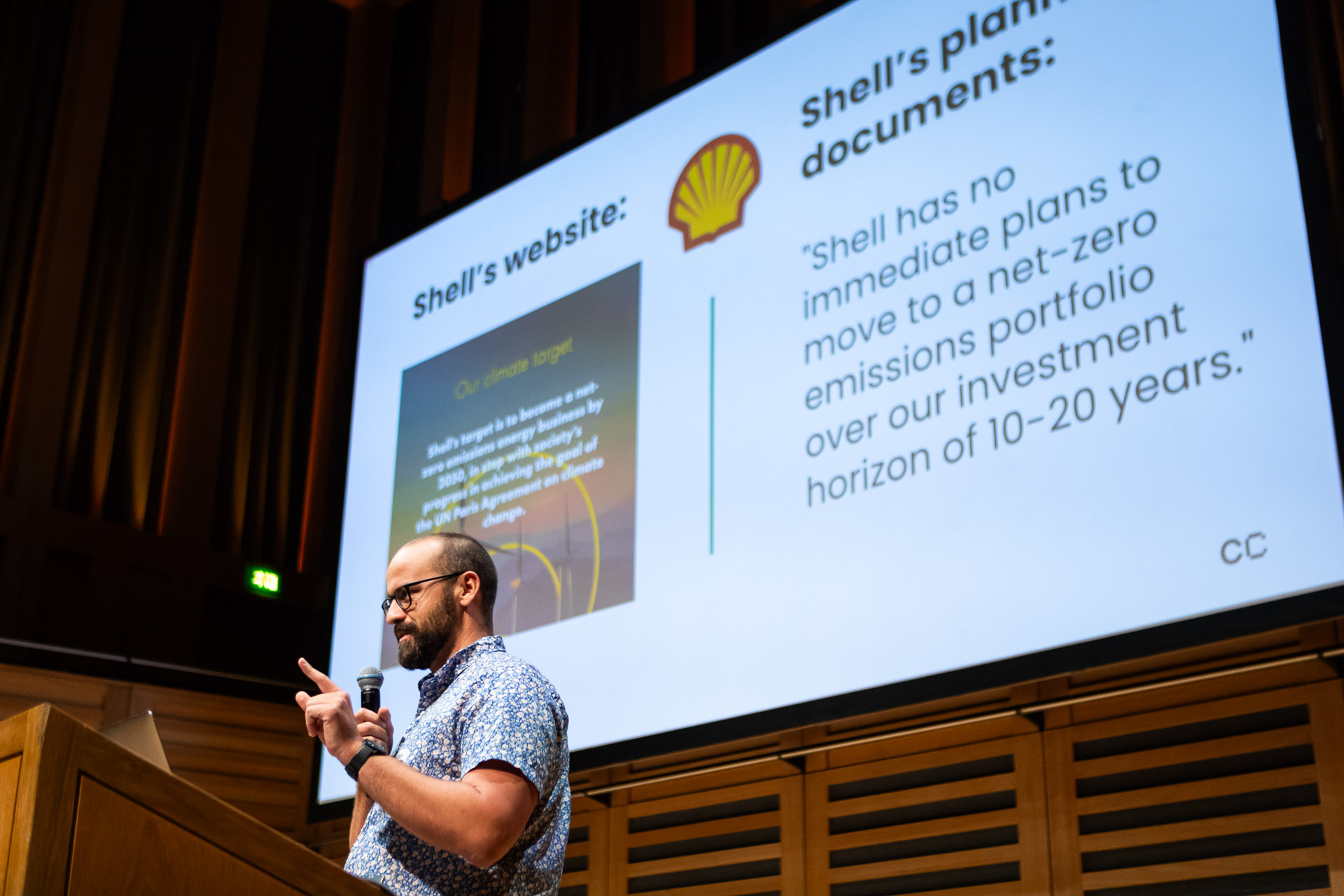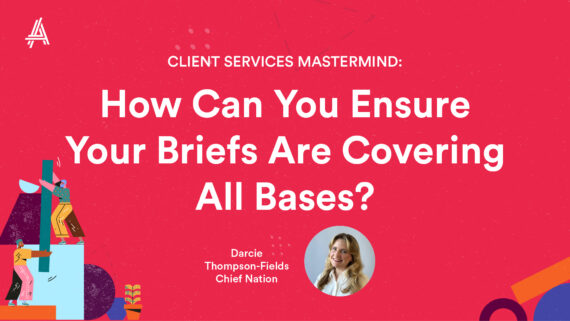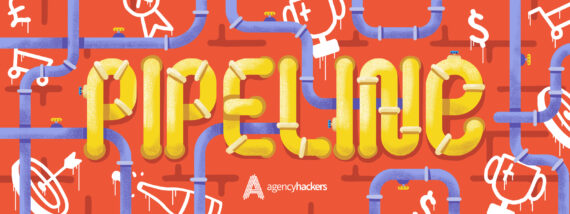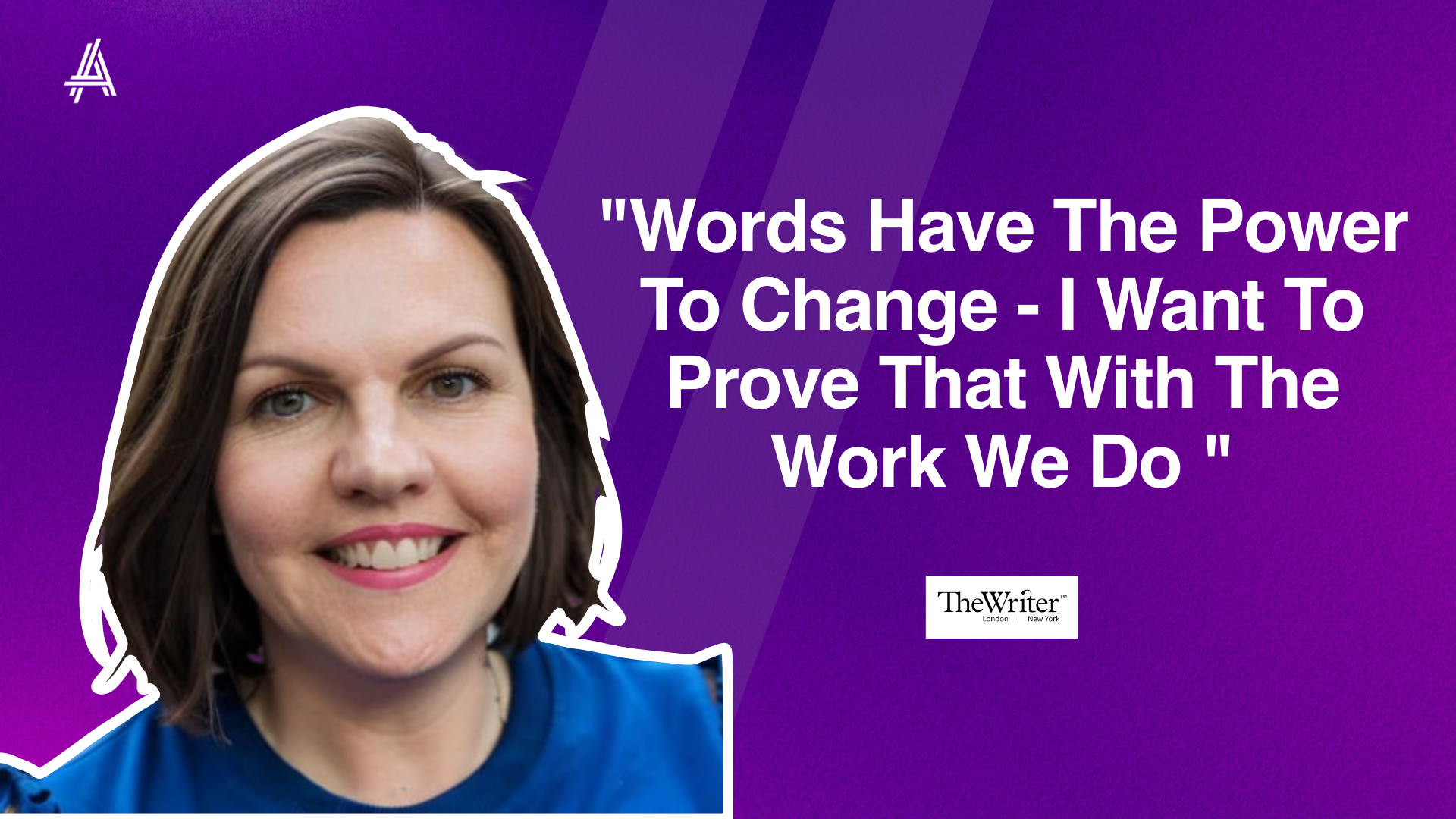Good Agencies Summit – Post-Mortem
- In November 2023 we ran the second Good Agencies Summit at Kings Place, London.
- It was an agency purpose conference with 150 attendees.
- In this post we’ll share what we learned running it – what worked and what didn’t.
Whenever we run a live event we like to ask people for feedback. It’s terrifying, because you’re asking people to tell you what you did wrong. But it’s the only way we can improve our events.
When we sent out the survey we said to people: “Imagine you’re in charge of making the next event better: what do you do?” Framing it like this (instead of “What didn’t you like?”) encourages people to be honest, because they feel like they’re role playing rather than criticising.
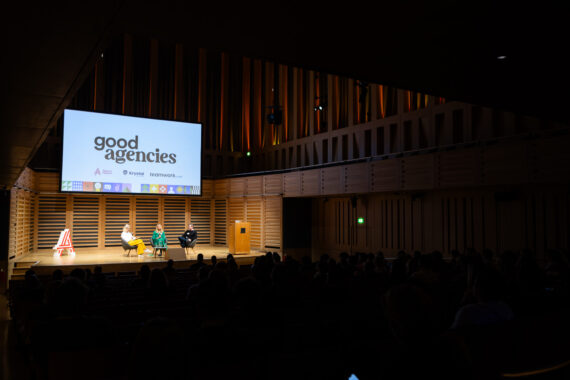
What did people say?
- 30 people fed back. The overall sentiment was positive, with an average rating of 8 out of 10.
- People liked the venue, the food, the variety of topics and the inclusive vibe and audience participation.
- Most of the improvements were practical things. We needed to provide more details on session topics and target audience level beforehand, and facilitate more networking through mixers, circulating lists of attendees, etc.
This event felt hard!
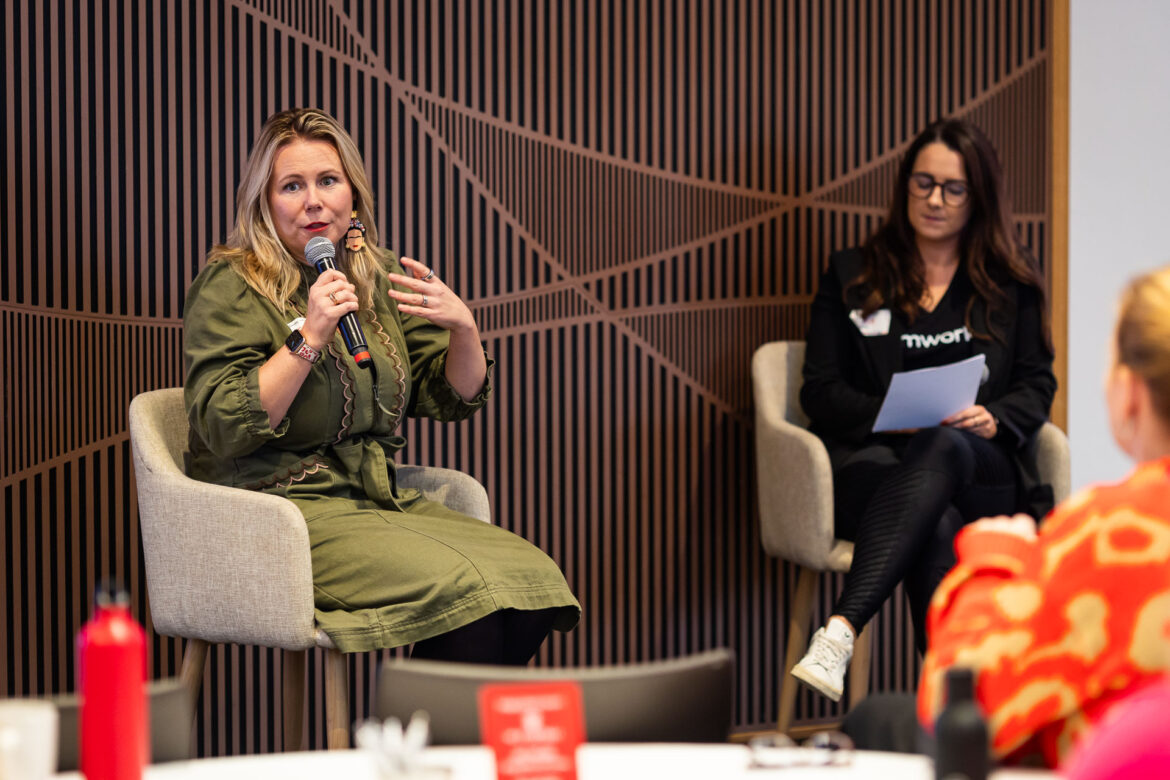
We’ll get into the specific attendee feedback in a moment.
But firstly, while this event went well – it did feel hard work to promote at times. We got there in the end, but it took more pushing than we’d have liked.
This hit home when we launched pre-sale tickets for 2024’s Ibiza Super Summit. We took the same revenue for that event in 24 hours as Good Agencies Summit did in two months of being on sale.
Overall, our objective in future is to do things people want. That feels simplistic, but it’s easy to forget the basics.
Sometimes an event feels hard to promote because the content isn’t strong. But this was not the case here: our team (Sophie and Kirstie) did a great job putting together the line-up.
Instead, it’s a bigger question – one that we constantly have to keep asking ourselves. Are we giving people what they actually want?
When you look at 2023’s most popular Agency Hackers events, they were on these themes:
- Agency operations
- Client services
- Sales and marketing
So why I decided to try to make Good Agencies Summit our big blow-out event for 2023, I’m not sure! (Especially given that 2022’s Good Agencies Summit was also quite hard to market!)
It’s probably because when you love writing and marketing, there’s a part of you that relishes the challenge of making something work. Persuasion is a fun power to wield.
But over time I’ve realised that it’s easier to just pick things that people already want. Your business should not be about pushing water uphill!
People liked the venue – but we overpaid

People had really good things to say about our venue, Kings Place.
It’s a lovely venue with multiple rooms, great catering, and wholesome media-crowd metropolitan vibes. (The Guardian is next door.) We booked the entire venue – and people appreciated being able to pick and choose which sessions they attended.
Commercially though, the venue was a big mistake. It was expensive – clocking in at £40,000 including food.
That’s the main reason this event actually made a small loss.
Now I realise we could have found a suitable venue (perhaps not as impressive) for half that price. But back in August 2023 when I booked this venue, we had close to zero experience of working with venues that cater to 100+.
Now I’m a bit wiser. But if we’d have picked a less expensive venue, the event would have been a commercial success. Hey ho!
What audience are we aiming this at?
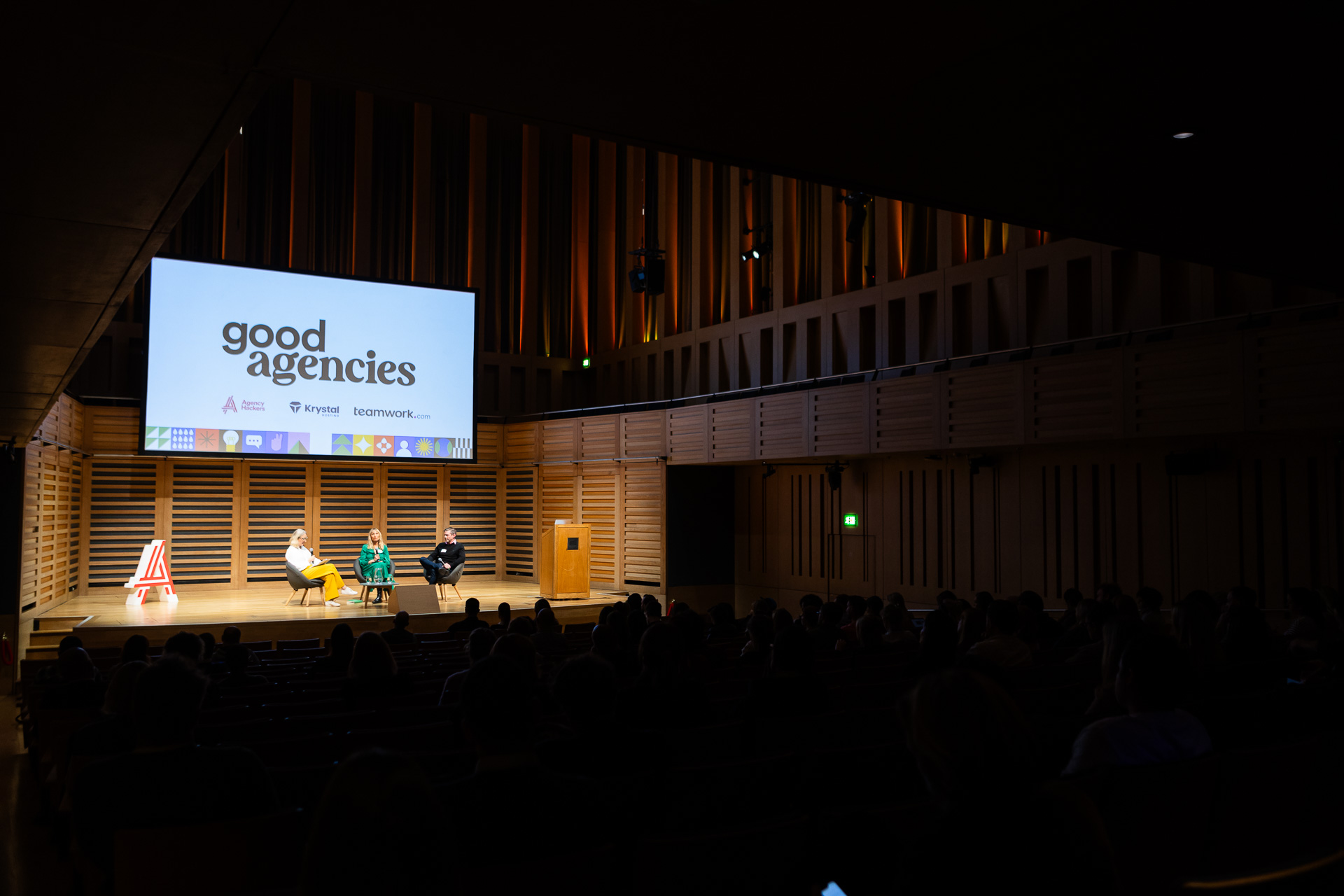
One of the main things I think we need to ask is: who is this event for?
There are broadly two types of people that come to Good Agencies Summit:
- Dyed-in-the-wool purpose and sustainability converts who wear their green creds on their sleeves 🦸🏻♀️.
- People who are a bit confused about the whole thing 🤔. They like the idea of being a “force for good”, but their main motivation now is that clients are asking them all these awkward questions about what they’re doing about Net Zero and diversity. This is all new and they want to compare notes with other agencies.
We have both of these camps in our audience.
But I think next year we need to make a decision which one we’re going for mostly. Is it for the party faithful, or is it for the undecided floating voters who are curious and mixed up?
We can cater to both camps to some extent, but we have to put one first in our overall messaging.
Commercially the “true believers” are easier to locate. They are quite visible in the industry, and they are the ones that will respond to the call for speakers, and get tagged in event posts on LinkedIn.
But they’re a slightly harder audience to please though, because they already spend a lot of time thinking about this topic. In some cases they feel they already have the answers they’re looking for, and they are more interested in spreading the gospel than learning from other agencies.
This is something we’re going to think about.
The storm rained on our attendance
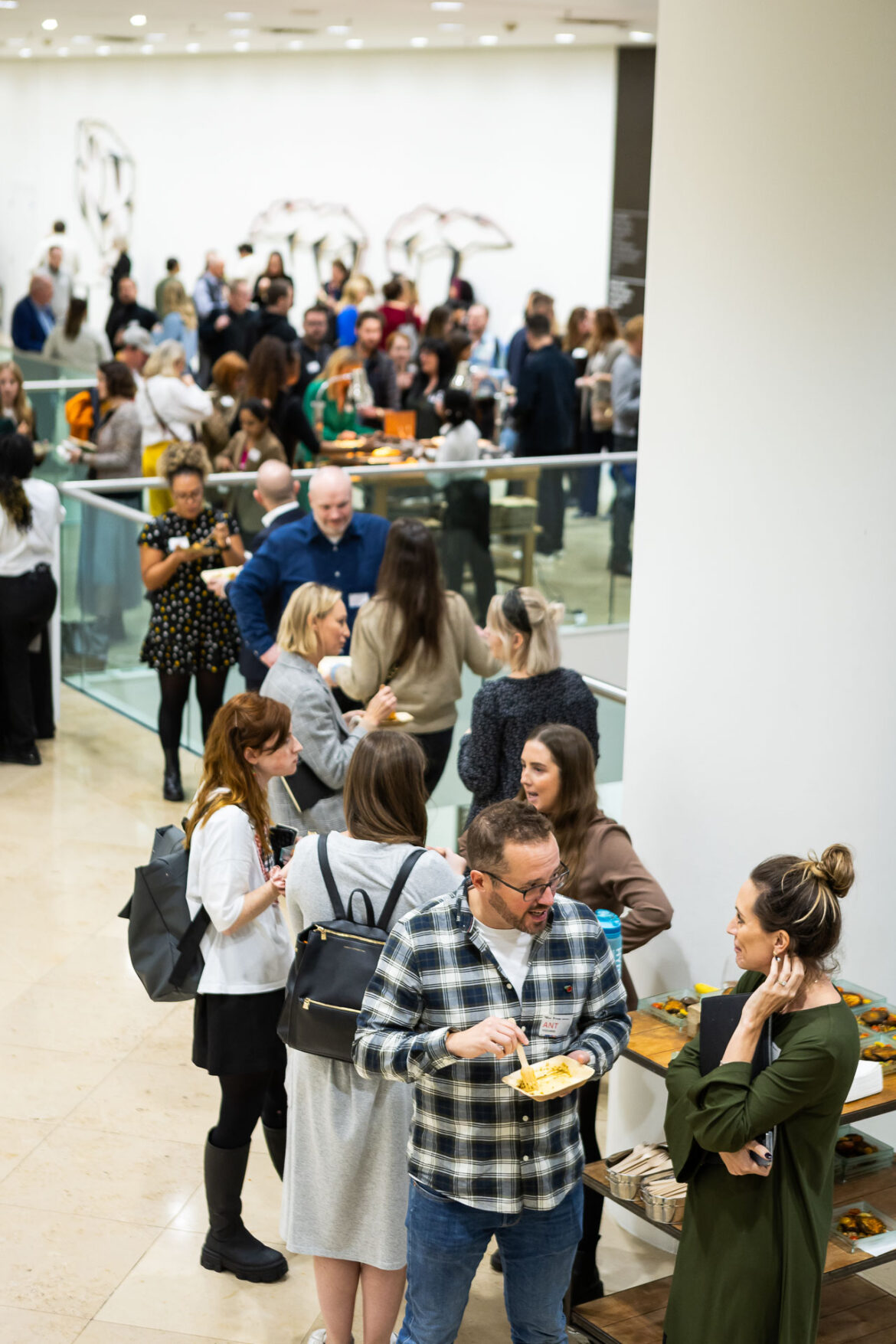
One huge headache was Storm Ciarán.
The National Rail website declared Def Con 1 – warning people not to travel anywhere for any purpose. “Loss of life” was mentioned in red text. (Sidenote: in the conference-organising community, people mutter about the National Rail website’s increasing histrionics when there’s bad weather forecast.)
I thought there was a real chance we’d have close to nobody turn up. On the day though, a lot of trains did actually run – but a lot of people from out of town were put off coming in case they got stranded in London.
It meant we had a significant drop-out rate on the day of the conference. Some of our speakers and facilitators couldn’t come. This meant that some of the facilitators weren’t as prepared as usual:
As one feedback item said:
“Some of the facilitation was better than others – some people seemed under prepared. [Facilitator] who facilitated my session was amazing, prepared, she’d done her research, she was engaged. Whereas [another session] was very top level, didn’t ask the hard questions, didn’t provoke conversation.”
People liked the audience participation. (And I had an idea to make this even better.)
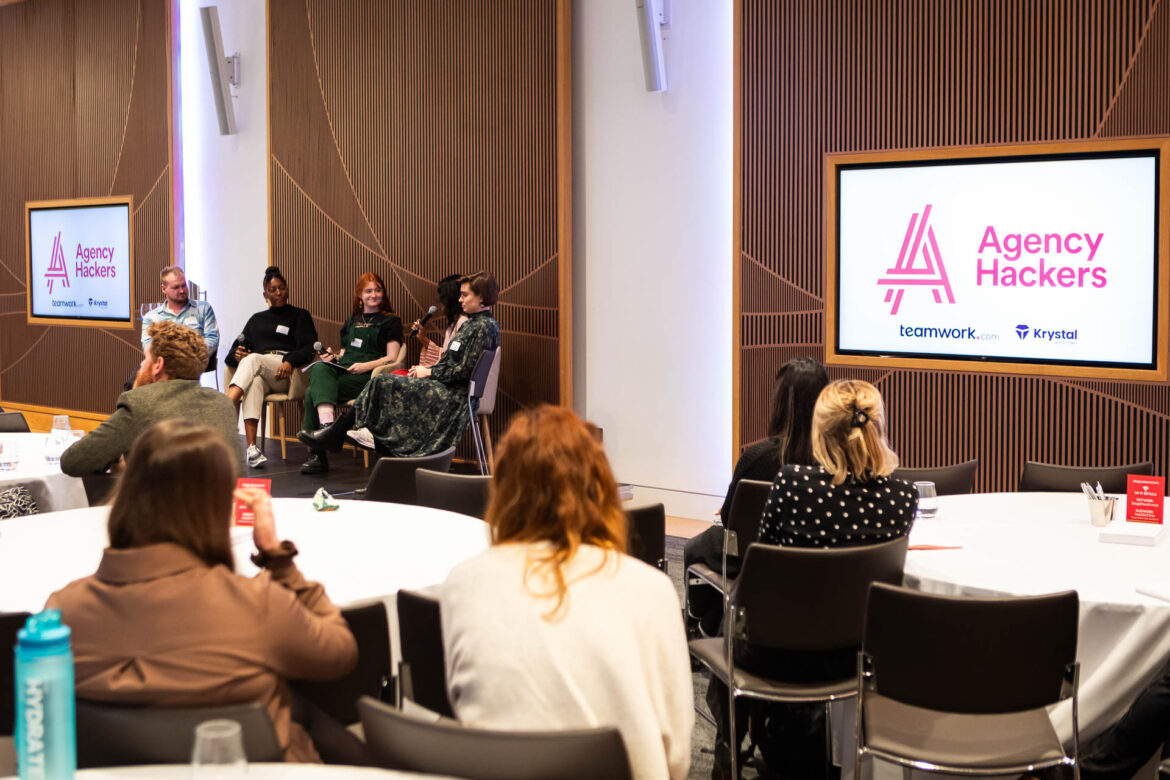
One thing we got a lot of positive feedback on was the audience involvement. We structure our events so you hear from the audience as much as the speakers:
“Most of all I liked the laid back vibe – loads of audience participation from the off. Very collaborative and lacking in ego from the organisers and participants – how refreshing!“
One thing I noticed as I walked around though – I remembered why we don’t do “panel sessions” much. It’s very easy for them to get boring!
With this format, all the energy is on the stage and the crowd starts to get sleepy. The conversational ball is passed between three people on little stools. It’s not engaging unless that ball is constantly thrown back to the audience.
So in future, when we run panels we’re going to have two facilitators – one is controlling the action on stage, but the other is kind of a ‘ringmaster’ who is responsible for working the crowd.
Both facilitators will compete for attention, pulling the action between the stage and the audience. It will put the panelists under more pressure to say interesting things!
People wanted meat

Finally, we always get some feedback on food.
One person complained there wasn’t any decaf tea. Another one didn’t like the fact the menu was plant-based. (“Not everyone wants to eat vegan curry”.)
I think we probably should have put some meat on there as an option.
Overall though, it worked! 🎉
I’m being reflective and picky here because this makes it more interesting to read. But just to be fair to ourselves, the event did go very well – and the feedback was overwhelmingly positive.
There are several things we feel really proud of:
- Creating an inclusive, collaborative vibe: Multiple reviewers praised the “laid back,” egoless vibe that encouraged open participation and conversation flow. This is central to our events’ success.
- Curating compelling content: The variety of topics and speaker perspectives was noted frequently as a strength. We crafted an agenda that appealed to a range of agencies.
- Enabling valuable connections: Enabling networking and realising “the challenges we face are completely normal” provided comfort/community. This peer-to-peer agency connection seems core.
- Logistics and hospitality: From name badge materials to plant prizes, food, venue layout and more – attention to these details created a welcoming, well-run event. As one person noted “Ian and his team were very welcoming and struck the right tone.”
- Innovation and creativity: From breakout formats to plant trophies, there was clearly creativity put into experiences. This aligns with the creative industry itself.
Fostering connections and insights that agencies find genuinely useful is always the primary goal of our events – and we did seem to achieve that for most people.

Join 3,000+ agencies
Get the Agency Hackers Newsletter, and read candid stories from other agency leaders.
Upcoming events

Join 3,000+ agencies
Get the Agency Hackers Newsletter, and read candid stories from other agency leaders.
